Agricultural
Plant new seeds.
Our intelligence long ago lifted us to the top of the food chain. Now we’re creating entirely new ones. With increasing pressure on resources, the world is hungry for more productive, and sustainable, food and farming practices.
Cross-pollination, genetic engineering, neurogastronomy - it’s all on the table.
Where will agricultural science take you?
A
Agronomist
Use science and technology to improve the productivity, efficiency and sustainability of farms and agricultural industries by focussing on crops, soils, water management and land use.
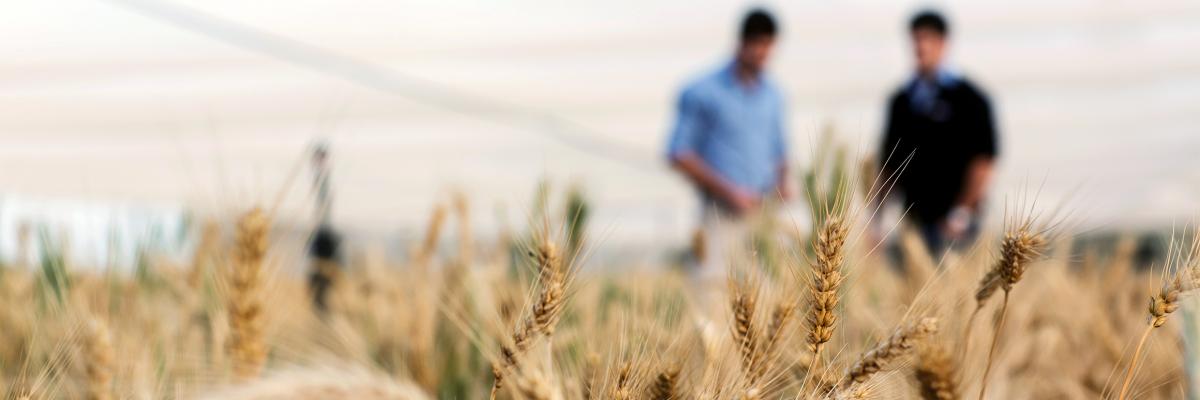
Agricultural consultant
Assist and advise farmers, agricultural and rural industries, plus government on the production, processing and distribution of farm produce.
Animal scientist
Conduct experiments in controlled breeding or in embryo manipulation. Animal scientists also investigate nutritional values of different feeds and environmental conditions necessary to improve productivity and quality.
B
Brewer or distiller
Since the discovery of fermentation, brewers, distillers and winemakers have been delighting global palates.
Room for new ideas and improvements will always exist across the drinks sector - from flavour manipulation in the lab to smart bottles and organic, biodynamic and natural wines.
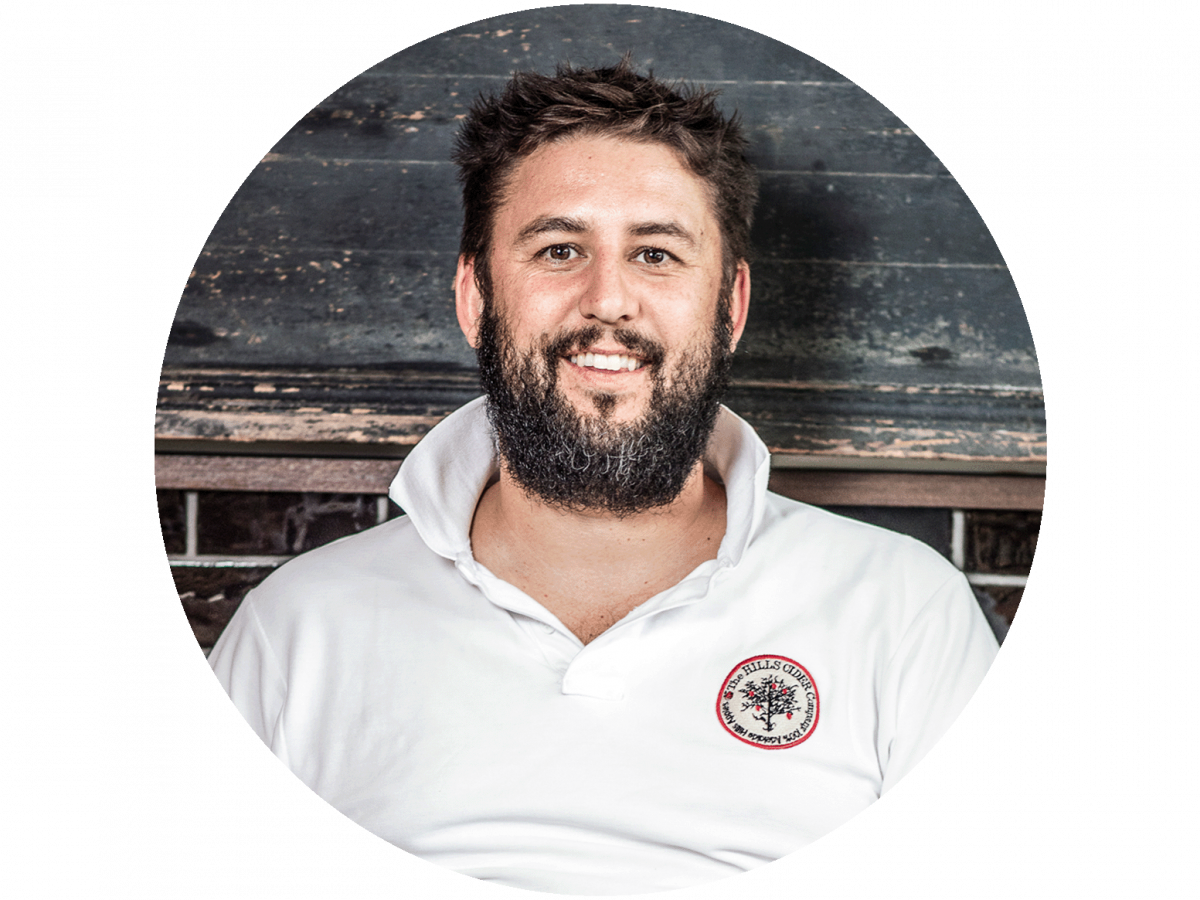
From student to brewer
Steve Dorman - Hills Cider Company
“It's (the viticulture and oenology program) so highly recognised that you can walk into any wine region in the world and tell them you've got a University of Adelaide degree and they welcome you with open arms.” - Graduate of the Bachelor of Viticulture & Oenology
Biosecurity officer
You can expect to protect our regions and communities from all sorts of pests and pathogens as a future microbiologist and biosecurity officer.
It’s a fascinating role with a critical part to play in maintaining not only animal health, but agricultural and human.
Biodiversity officer
Help protect, manage and enhance the local environment through working with national parks and wildlife, conservation groups, government or non-government sectors and possibly even mining companies.
Botanist
Combine your love of science and nature as a botanist.
Study plant evolution, structure, development, and genetics in areas such as conservation and management of natural resources, agriculture, forestry, horticulture, medicine and biotechnology.
Business development manager
Mix business know-how with scientific inquiry to help develop, manufacture or market products which require specific discipline knowledge due to their complex and innovative nature.
Think food safety, medicines and medical testing equipment or perhaps even precision agriculture.
Banker
Major financial institutions in Australia and around the globe require graduates with varied backgrounds, not just accounting or finance.
The unique knowledge developed in areas like agriculture and physics can provide useful insight when analysing and solving financial problems.
C
Communicator or teacher
With scientific knowledge and understanding in such incredible demand worldwide, one of your most rewarding career paths could be to ‘turn the scientific light on’ for others.
You could engage the public as a science educator or journalist. You might develop a ‘citizen science’ app. Or maybe you’ll argue for science-backed change in a cinema-release documentary.
Crop scientist
Apply your expert knowledge to develop new processes and applications which solve local or global problems related to growing food, feed and fibre.
Think crop production in drought affected regions; pollution control; pest management or new ways to improve soil health.
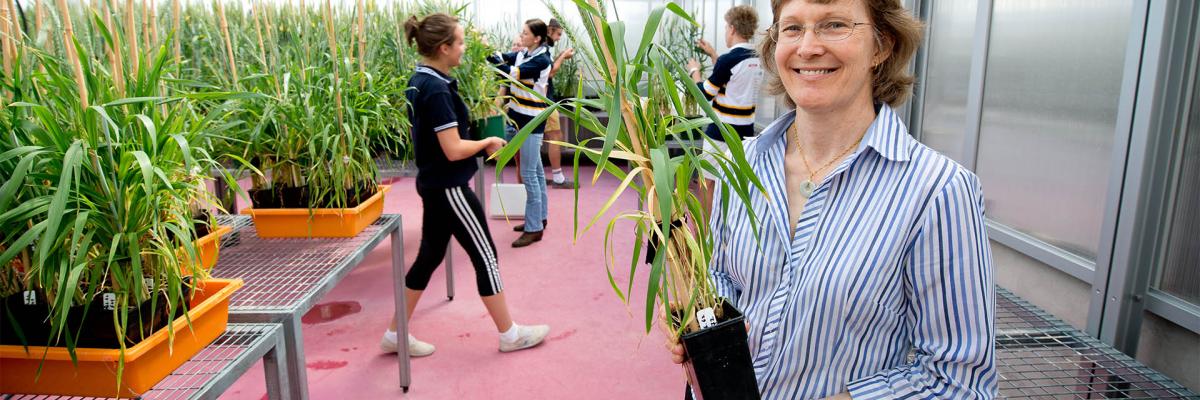
D
Data scientist
Data scientists have already changed our lives—from optimising Internet searches to speeding cancer research and informing corporations’ financial decision-making.
Tomorrow you could build deep learning pipelines to guide autonomous air taxis, precisely match manufacturers’ supply to fluctuating demand or continuously enhance farms’ productivity based on real-time data feeds.
E
Entomologist
As an expert on insects, you might investigate the cause of outbreaks, such as fruit fly, or research control methods through integrated pest management solutions, biological control or chemical means.
Environmental manager
Forest protections, national parks, fishing guidelines, wildlife sanctuaries, sustainability policy - generating change is as much a profession as a science.
As an environmental manager you will play a huge role in determining the way forward for our planet and species.
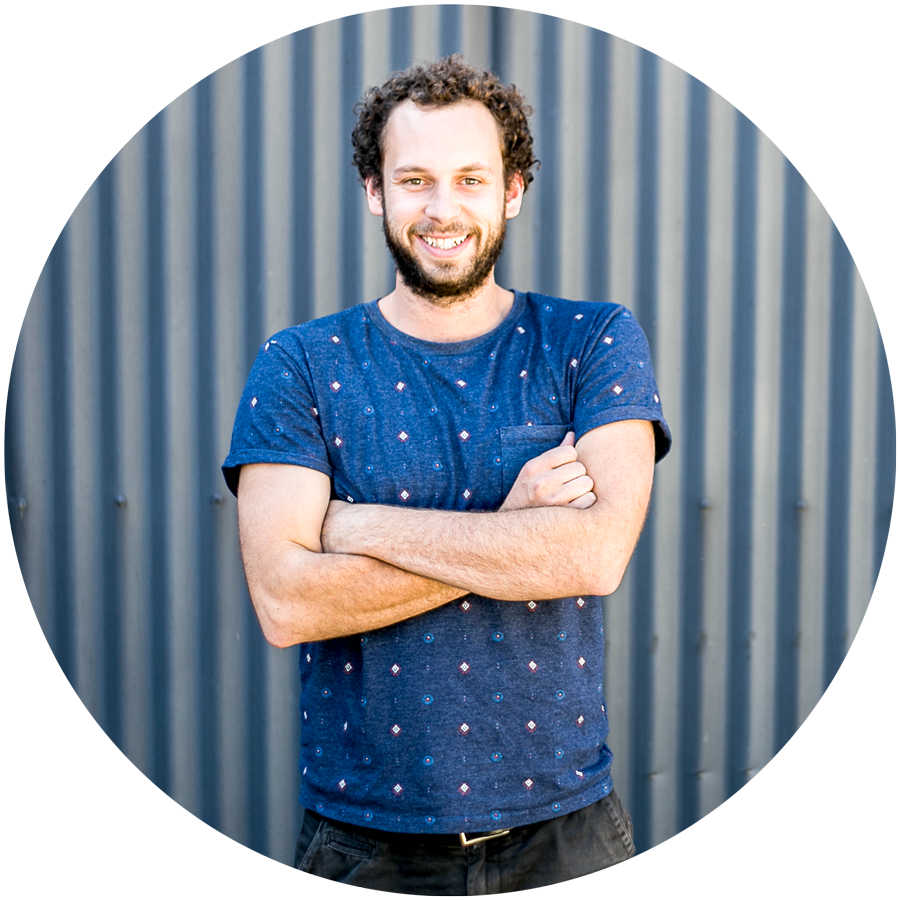
From student to entrepreneur
Sacha La Forgia - Adelaide Hills Distillery
"Building my technical palate through tastings while at university was one of the most important skills for my career. Having knowledge about flavour chemistry and how molecules interact in the bottle has been really beneficial - it helps me make intelligent decisions." - Graduate of the Bachelor of Viticulture & Oenology
Entrepreneur
If Elon Musk can do it, so can you. Entrepreneurial scientists can blaze trails in any field.
You could develop and market anything from state-of-the-art space-travel technology and life-changing pharmaceuticals, to disease-preventing pet care products, new and sustainable food products, and waste-converting energy delivery.
F
Flavour chemist
Are coffee and garlic a natural pair? Science says yes.
You will examine flavour on a molecular and sensory level in food, beverage, pharmaceutical, cosmetic or even pet industries to boost natural flavours or create entirely new ones.
Food chemist
The chemistry of cooking is big business. Celebrity chef’s like Heston Blumenthal and Ben Milbourne have transformed kitchens into labs and have used science to explain our experience of food.
You might explore new ways to make potato chips healthier or work out whether carrots have the most nutritional value when eaten raw, boiled, steamed or microwaved. You could also lead the way in reducing food waste.
Farmer
Yesterday’s farmers brought us irrigation, selective breeding and livestock production.
Tomorrow, working in agriculture could involve skyscraper greenhouses, underwater biospheres, georeferencing drones, chemical cloud seeding and crops grown in nutrient-enriched oxygen.
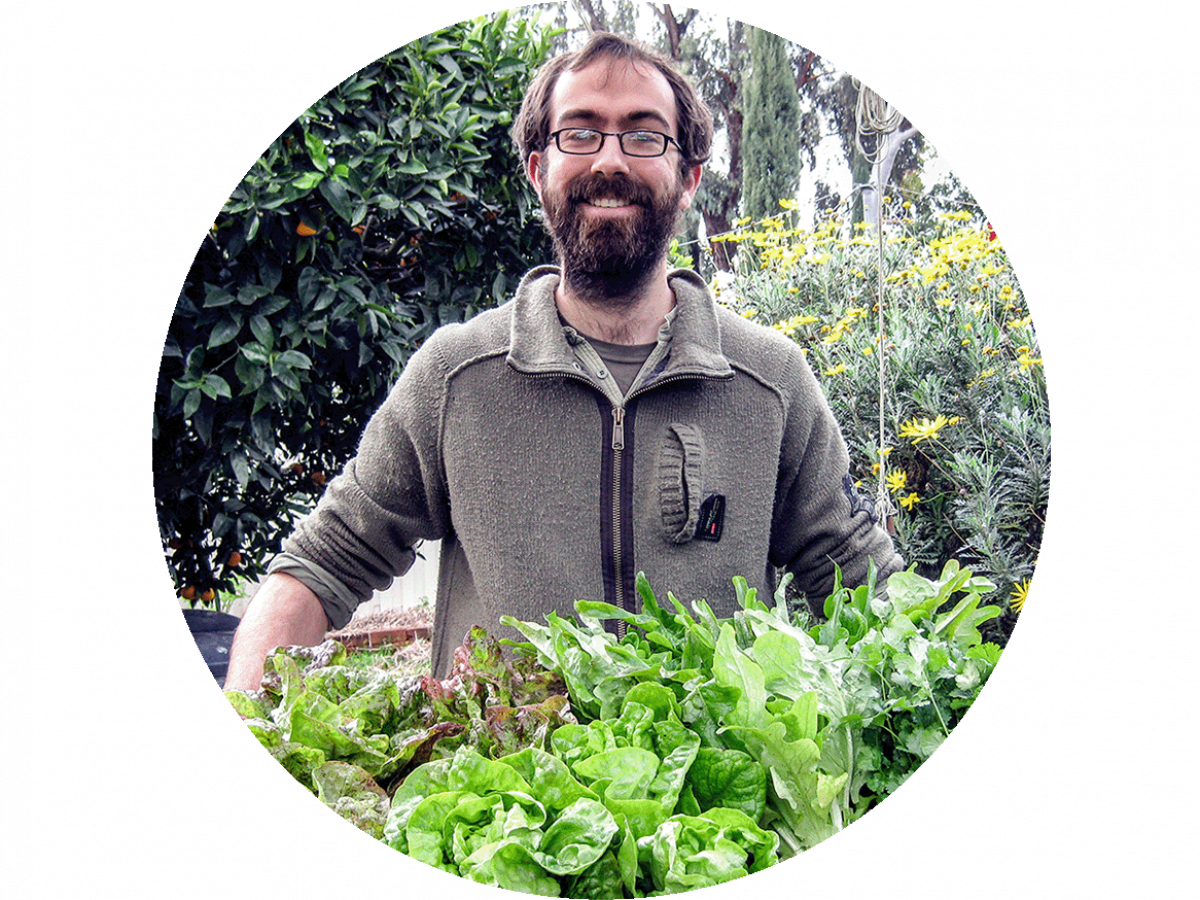
From student to urban farmer
Nat Wiseman - Village Greens of Willunga Creek / Wagtail Urban Farm
“Studying science opened up a whole world of ideas. It led to a real awakening for me and ignited my passion in trying to address the environmental and social issues I learned about.” - Graduate of the BSc
Fisheries researcher
Assess and advise governments and industry on things like introduced species, population numbers, migration patterns or the impact of pollution in our waterways.
Your advice helps develop marine conservation and fishing policies, including in aquaculture.
Financial analyst
Financial data is one of the most complex and changing data sets available. Large financial organisations employ analysts to interpret and predict, so that decisions on future actions can be based on solid evidence.
Food technologist
Past technological progress has delivered microwaves, vacuum packaging and freeze-dried fruit.
Now it’s predicted food technologists will normalise 3D printed pasta, ultrasound-extracted oil, shockwave-tenderised meat, intelligent frying pans and mind-reading menus.
Food microbiologist
Food microbiologists work at the micro level of food from harvest to consumption.
You could develop a new process of food production, determine the shelf life for food, identify spoilage microorganisms or develop microbiological or chemical testing methods.
From student to food technologist

Crystal Xu - Mitani
"The Bachelor of Food and Nutrition Science is well structured with comprehensive coverage of theories and practical experience. It equipped me with a deep discipline knowledge of food biochemistry and nutrient physiology. Practical courses and placements provided me with hands-on experiences of what it is like to work in the commercial industry. This helped me transition into the working environment. I also got my first full time job through the third-year industry placement." - Graduate of the Bachelor of Food & Nutrition Science
Food scientist
Pasteurisation, carbonation, flavour creation - food scientists have been changing our edible environment for centuries.
Now, they’re concocting a sustainable future by making ice cream from potatoes, cow-free meat and milk, insect-based pet and livestock products… even jellyfish chipperies.
Food physicist
The multidisciplinary mix of physics and food might not seem an obvious match, but physicists are working across the food industry, from understanding the physics at work when eating lollies to developing new mass-manufacturing technology.
You might develop new processes for preserving food or ways to manufacture food with less waste of raw materials, energy and water.
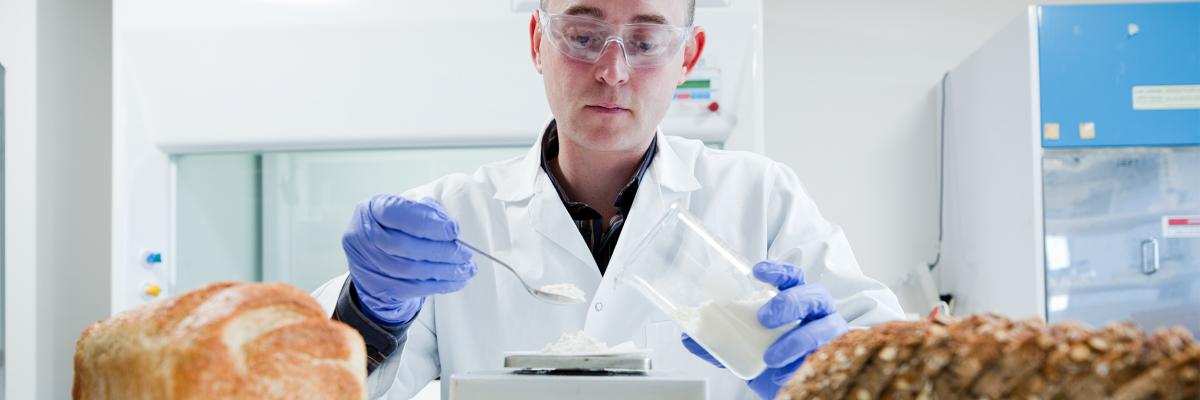
G
Grower liaison officer
Work with growers in agricultural or viticultural sectors to service grower needs and help plan and implement quality assurance, crop management and environmental programs.
Geneticist
With access to high-throughput DNA sequencing, the importance of genetics has increased in leaps and bounds.
You could interpret the molecular cause of disease, decipher human genealogy, generate of drought resistant crops, manage the breeding of livestock, or oversee breeding programs for endangered species.
H
Horticulturalist
You will apply your scientific knowledge to the cultivation and propagation of fruit, vegetables, berries, flowers, trees, shrubs and crops.
You may also work in landscape design, parks and gardens, or the conservation and preservation of natural resources.
I
Innovation manager
Innovation is a key driver of scientific discovery. Big changes are underway in industries like medicine, agriculture and pharmaceuticals and they will accelerate in years to come.
As an innovation manager you can apply your scientific skills in any number of ways, from clearing the ocean of plastics, to pioneering a new biofuel or helping to launch new technology into space.
L
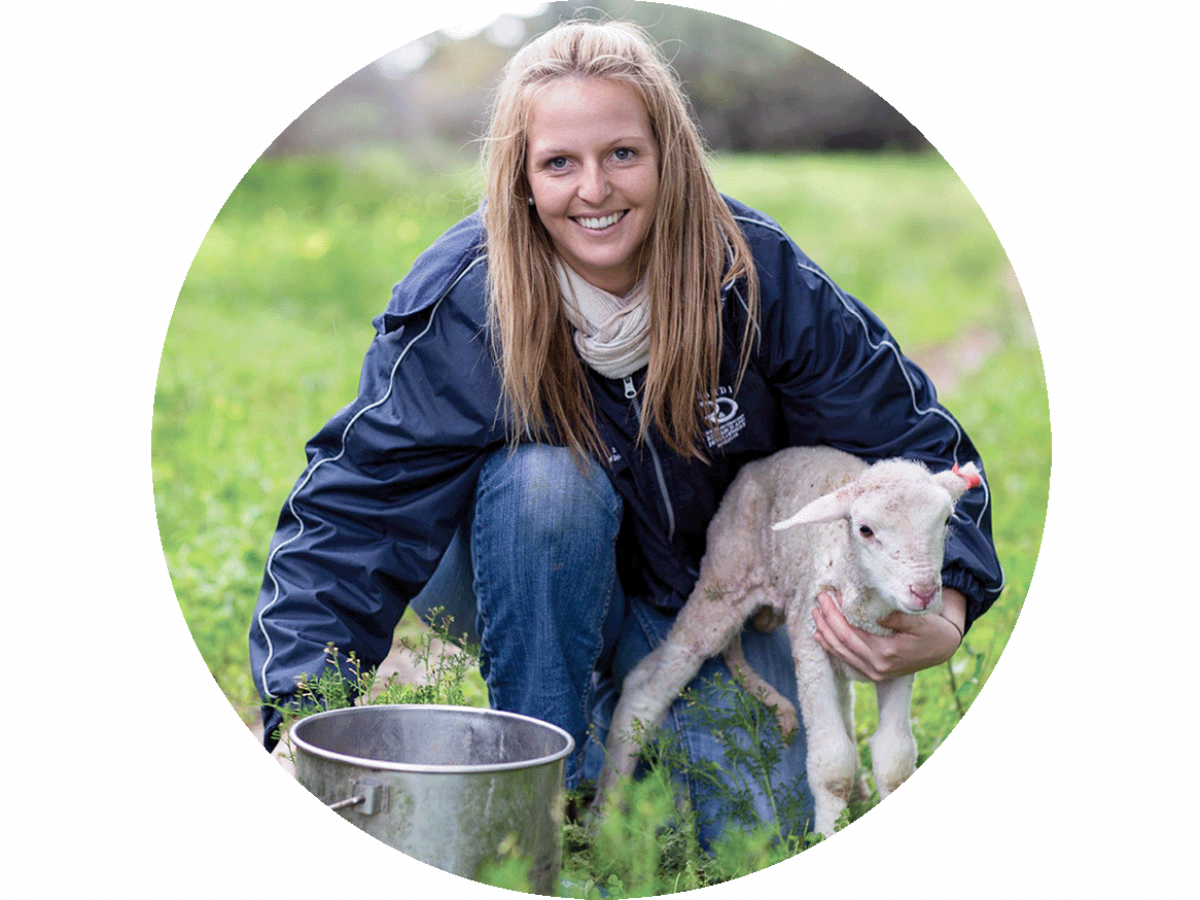
From student to research scientist
Jessica Crettenden - SARDI (Minnipa Agricultural Centre, Eyre Peninsula)
“Field trips and practicals that were run as part of my agriculture degree helped develop my knowledge and was a key reason why I have had success in my career.” - Graduate of the Bachelor of Agricultural Sciences
Livestock scientist
Many scientists work hand-in-hand with farmers to improve their livestock’s health and welfare.
Management and breeding practices are constantly advancing in line with new tech, research, ideas and environments - with animal science leading the charge.
Laboratory technician or manager
If you love working in a lab, this job is a great option.
You will assist scientists by collecting and preparing samples, carrying out experiments and recording and presenting results for critical analysis. Once you gain experience you might manage a small team of people to ensure the smooth running of the laboratory.
M
Microbiologist
You’ll spend your time collecting samples and analysing them, figuring out how microorganisms such as bacteria, fungus, viruses and parasites interact with their environment.
Everything you learn and record is used to better understand and fight diseases or perhaps be used to create yoghurt or the world’s next micro-brew.
N

From student to nutritionist / dietician
Lauren Saurbrey - Family Nutrition Services Australia / Lyell McEwin Hospital
"Food and nutrition is an excellent pathway into a career in dietetics. The practical coursework, work placement and 6-month international exchange set me up for the masters, and I’m now a qualified dietitian." - Graduate of the Bachelor of Food & Nutrition Science
Nutritionist or dietitian
Improving human health will always be a scientific priority.
Dietetic experts will advance nutrition into new realms of understanding with transformative biotech, enriched edibles and diets streamlined to suit our individual DNA.
Natural resource manager
Balance the need of landowners with the health of the ecosystem and the environment as a whole.
You might help develop government policies, ensure developers comply with regulations or oversee program facilities. You may also choose to specialise in land management or soil and water conservation.
P
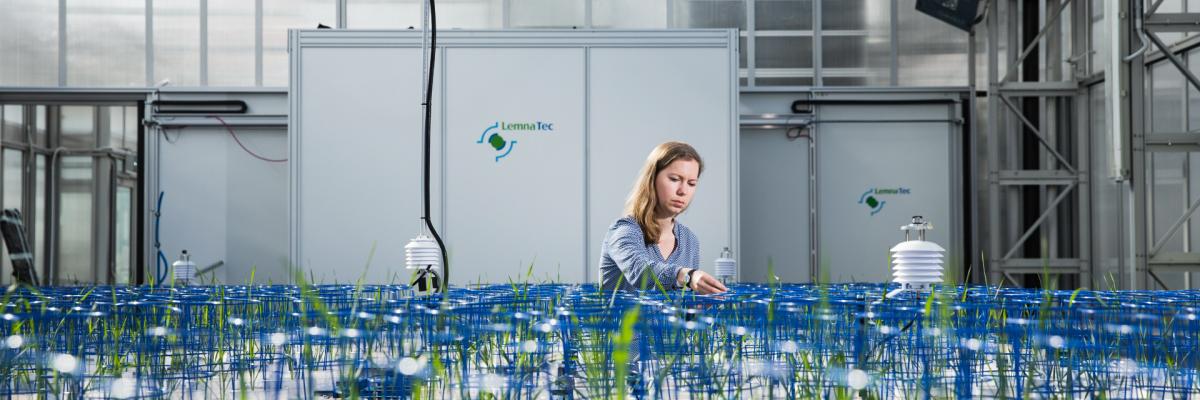
Public health scientist
As we move forward, scientific innovation will be critical for regulating health and sustainability, with huge changes in biodiversity management, waste control, pathogen detection and food quality assurance.
Understanding the geographic patterns of health risks and human responses helps improve how and where improvements are needed.
Precision agriculture specialist
Take farming to the next level using new technology to collect large amounts of data on crop or animal performance and assess this against defined production areas to determine nutrient or other input levels.
Smart farming uses GPS, sensor technology and robotics to optimise agricultural production with precise inputs per square metre.
Plant biotechnologist
You will carry out innovative plant related research and development activities aimed at producing superior plant or crop varieties.
This will see you using your expertise in a research and development, advisory or consulting role.
Policy officer
Scientists are under increasing pressure to create world-changing interventions; from gene editing to driverless cars, science needs policy officers to ask questions about the social and political implications of these innovations.
As a policy officer you might use your technical knowledge to ensure new environmental legislation is based in sound scientific evidence.
Physicist
Explore how energy and matter interact. Most physicists spend their time conducting research for hospitals, private industry research centres or universities.
You may also be involved in the design of scientific equipment such as particle accelerators and lasers.
Q
Quarantine officer
Assist in the identification and control of biosecurity risks and hazards through managing the entry of agricultural and horticultural produce, plants, animals, various microorganisms and viruses that cross national and international borders.
R
Research & development manager
What’s your scientific pleasure - astrophysics? How does research with a company like SpaceX sound? Or one of Australia’s growing number of space start-ups?
If biotech’s more your thing, how about R&D for a giant like Samsung Biologics? Perhaps you’d like to consult to organisations like Adelaide’s Futuris Corp on future farming? Research opportunities are everywhere.

From student to industry development officer
Hannah McArdle - AUSVEG SA
“My course had a subject on professional skills which required students to complete a review after a minimum of three months’ work placement. One job I had during this time allowed me to see what industry I wanted to work in which is horticulture. I received my first job out of university after being connected to the employer by the University.” - Graduate of the Bachelor of Agricultural Sciences
Rural finance manager
Use your scientific background and understanding of finance to help support and enable farmers to build vibrant businesses.
Researcher
Australia has numerous federal scientific research organisations, such as the: CSIRO; Defence Science and Technology Group; Australian Antarctic Division; and Australian Institute of Marine Science. South Australia has many too. You’ll do important work and regularly collaborate with universities and industry.
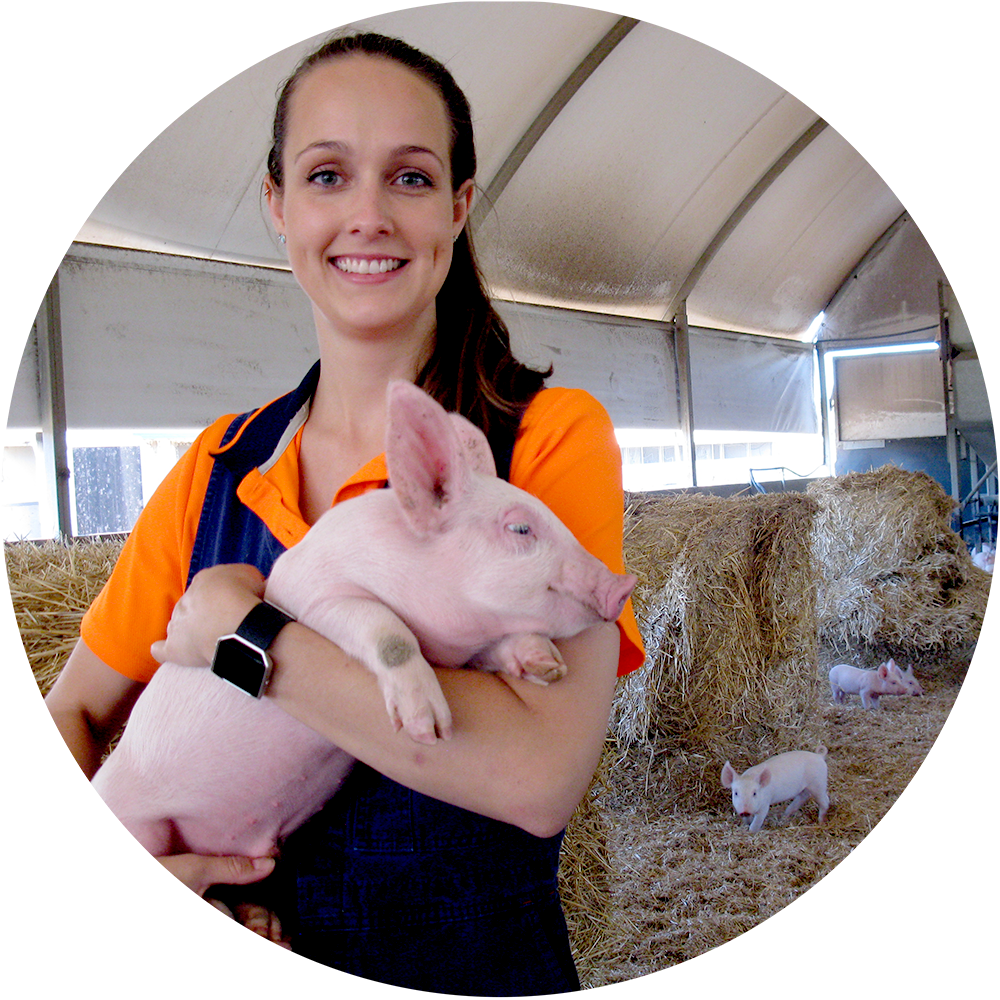
From student to researcher
Tanya Nowland - Pig reproduction & welfare, PIRSA-SARDI
“The emphasis placed on hands on learning within the degree has helped me in gaining the skills set for my job as a research officer for the South Australian Research and Development Institute.” - Graduate of the BSc (Animal Science)
S
Specialist
Countless thriving businesses owe their success, in large part, to staff with scientific expertise.
Picture yourself leading R&D for Virgin Galactic, managing environmental sustainability for an ecotourism developer, or overseeing cybersecurity for a major defence contractor.
Soil scientist
Become an expert on the Earth’s surface. Understand soil formation, classification and mapping; investigate the physical, chemical, biological and fertility properties of soils; and learn how to properly use and manage soils.
Sports nutritionist
Measure and assess the health and performance of athletes, and develop nutritional meal plans designed to enhance their performance. Monitor and adjust nutritional plans as required.
U
University academic
Research universities are absolute hives of scientific discovery. There are over 1,000 in the world - and Adelaide Uni is one of them.
Academics generally combine research, teaching and administrative duties and regularly collaborate with leading companies and research organisations all over the globe.
V
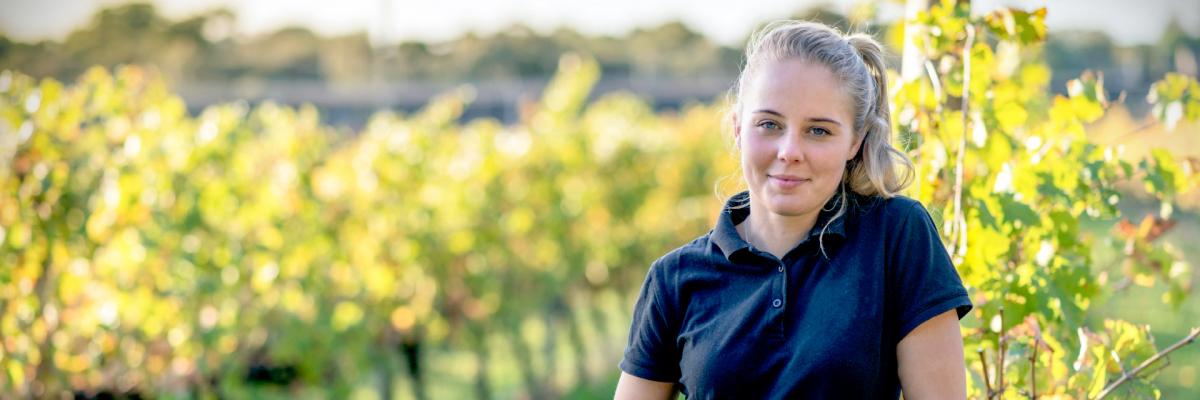
Viticulturist
Everyone knows the best wines come from the best vineyards.
Specialise in the production of wine grapes and vineyard management, taking your expertise to winegrowing regions around the world. Apply advanced technologies for precision viticulture, reducing diseases and improving grape yield and quality.
Vineyard manager
Work for a wine business taking responsibility for the everyday running of the vineyard(s).
This involves business planning; hiring, training and supervision of staff; maintenance of machinery; budgeting and finance; monitoring the health of the grapes; and having an input into the best practices for viticulture.
W
Wildlife conservationist
Wildlife workers the world over are busy managing nature preserves, reconstructing habitats for endangered animals and leading breeding programs in sanctuaries.
Conservation in the coming years will mean drones and AI in the field, safeguarding at-risk species through cryopreservation and facial recognition technology for fish.
Wine scientist
From soil and plant science in the vineyard to microbiology, chemistry and sensory science in the winery.
You might spend your time determining the suitability of new grape varieties to warmer climates, or developing novel strains of yeast and bacteria to improve fermentation efficiency, or analysing the aroma and flavour compounds that influence preferences and wine quality.
Wine marketer
Promote wine or wine related products anywhere around the world using your understanding of viticulture and winemaking and convince customers of the unique attributes of the product. This could include selling wine or barrels or other related equipment.
Winemaker
Also known as an oenologist or vintner, you will oversee the entire winemaking process, including what happens in the vineyard, when to harvest, crushing, fermentation, ageing, blending and bottling.
Combine your scientific knowledge with practical experience to craft award winning wines.

From student to winemaker
Lester Yang - Pernod Ricard (Jacob’s Creek)
"The viticulture and oenology program is an intense and very practical program. It enables lots of hands-on opportunities on-campus through the on-site winery, vineyard and laboratories. These experiences allow students to quickly pick up things once in a real working environment." - Graduate of the Master of Viticulture & Oenology
What will you study?
- Bachelor of Agricultural Sciences
- Bachelor of Applied Data Analytics - NEW
- Bachelor of Food and Nutrition Science
- Bachelor of Science
- Bachelor of Science (Advanced)
- Bachelor of Science (Animal Science)
- Bachelor of Science and Entrepreneurship
- Bachelor of Viticulture and Oenology
- Bachelor of Teaching (Middle) with Bachelor of Science
- Bachelor of Teaching (Secondary) with Bachelor of Science
- Bachelor of Veterinary Technology - NEW
- Honours Degree of Bachelor of Food & Nutrition Science
- Honours Degree of Bachelor of Science
- Honours Degree of Bachelor of Science - NEW
- Honours Degree of Bachelor of Science (Advanced) - NEW
- Honours Degree of Bachelor of Viticulture and Oenology
